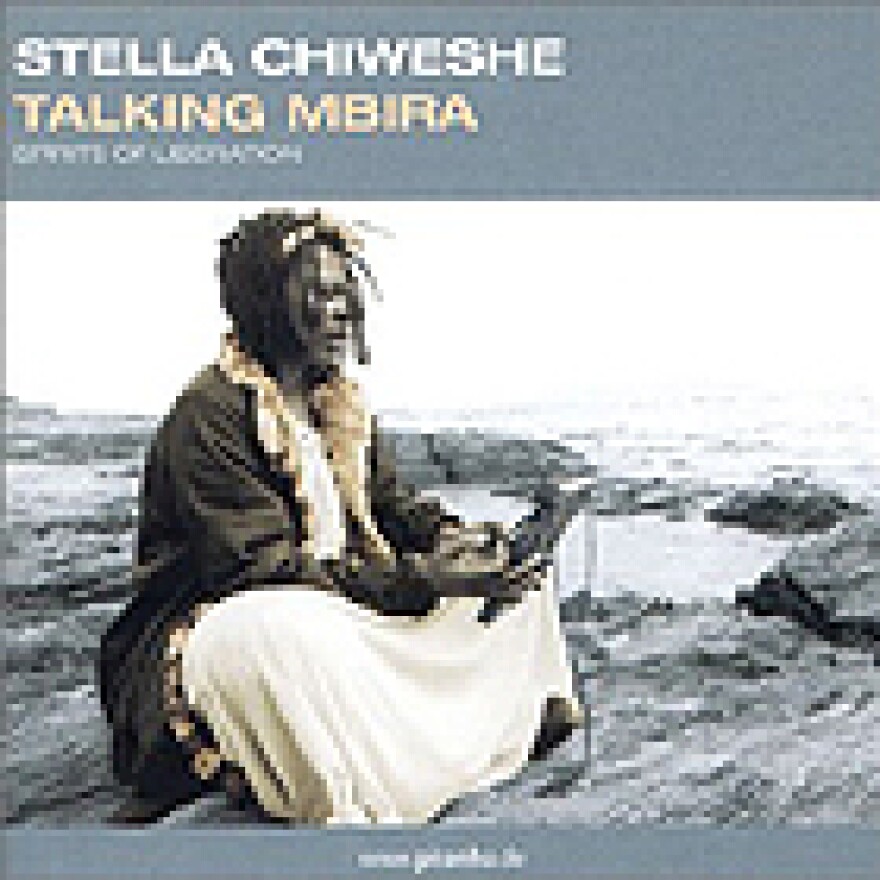
The mbira, or Zimbabwean thumb piano, is a revered ceremonial instrument from Southern Africa with two rows of metal keys mounted on a wooden soundboard. Players use thumb and forefinger to pluck the keys up or down, creating percussive, often haunting tones. Traditional mbira song lyrics are evocative and impassioned, often accompanied by call and response singing and guitar.
Mbira artists have lately been embraced by world music enthusiasts. Much of the attention is focused on a woman known as the "mbira queen of Zimbabwe," Stella Chiweshe. With a recording career that spans over 30 years in her native country, Chiweshe is now finding new fans around the globe. She recently visited NPR's Studio 4A to perform songs from her new CD and talk with NPR's Felix Contreras about the deeply spiritual and social sources of her inspiration.
Before Zimbabwe gained independence in 1980, the colonial government banned public performances of mbira music, believing them to be aiding the independence movement. But underground shows persisted, many featuring Chiweshe as both a performer and organizer.
After independence, Chiweshe's contributions to the music, theater, film and dance of Zimbabwe have made her one of the country's most successful and popular artists. Her latest CD is Talking Mbira: Spirits of Liberation.
Recording Engineer: Drew Reynolds, NPR
Copyright 2022 NPR. To see more, visit https://www.npr.org.

